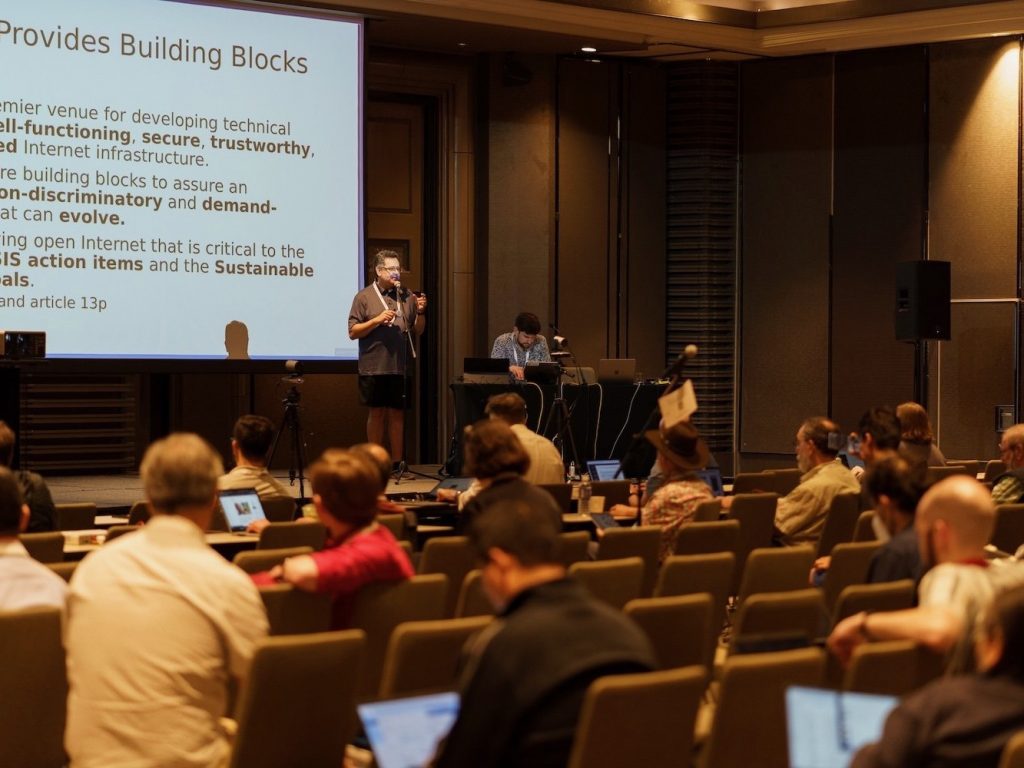- IETF calls for enhanced collaboration between technologists and policymakers to ensure informed internet governance.
- Efforts are underway to diversify participation, addressing underrepresentation in technical standard-setting bodies.
IETF strengthening technical voices in internet governance
At the IETF 122 meeting in Bangkok, the Internet Architecture Board (IAB) dedicated a session to Internet Governance in anticipation of the World Summit on the Information Society (WSIS)+20 High-Level Segment scheduled for July 2025 in Geneva. The focus of the meeting was: to ensure that the technical community has a voice in the review process of WSIS commitments, in particular the Tunis Agenda, which advocates for multi-stakeholder participation in Internet governance rather than a government-led (multilateral) model.
Olaf Kolkman of the Internet Society (ISOC) presented the historical and strategic context of the WSIS process, highlighting its impact on Internet policy since 2005. Ian Sheldon of the Australian Government followed, emphasising the importance of the IETF’s technical input to policy development.
Alvaro Retana then outlined how the IETF and ISOC plan to participate in the review: by sending IAB members and community representatives to Geneva to advocate for the IETF’s unique contribution to an open, secure and fragmentation-free Internet. The International Internet Engineering Task Force (IETF), as a central cornerstone of Internet infrastructure development, provides key support for building a secure, reliable, efficient and fragmentation-free global Internet through its open and transparent working mechanisms and free and open technical standards. This unique governance model not only ensures the interoperability and demand-driven nature of technical standards, but also lays an important foundation for achieving the World Summit on the Information Society (WSIS) Action Plan and the United Nations’ Sustainable Development Goals (SDGs).
Also read: IETF 122 discusses Key DNS enhancements
Also read: APAC DNS Forum 2025: Key highlights to look forward to
Why it’s important
The inclusion of technical perspectives in internet governance is crucial for several reasons. Firstly, technologists possess a deep understanding of the internet’s infrastructure and can foresee the practical implications of policy decisions. Their insights help ensure that regulations are technically feasible and do not inadvertently compromise the internet’s functionality or security. Secondly, the IETF’s emphasis on multistakeholderism aligns with global calls for inclusive governance models. The Tunis Agenda, established during the World Summit on the Information Society, recognized the vital role of the technical community alongside governments, civil society, and the private sector in internet governance.
Addressing these issues requires concerted efforts to lower barriers to entry and actively encourage diverse participation.By doing so, the IETF and similar bodies can develop more robust, equitable, and effective internet standards that reflect a broader range of experiences and needs.

